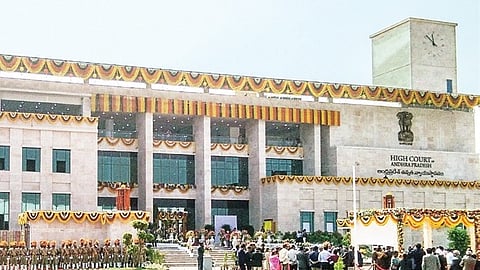

VIJAYAWADA: In a significant verdict affirming the rights of transgenders, the Andhra Pradesh High Court on Saturday ruled that trans women (individuals who transition from male to female) cannot be denied recognition as women under the Indian law solely on the grounds of their inability to bear children.
The court further categorically rejected the argument that womanhood is tied exclusively to reproductive capacity, stating that such a claim is ‘completely incorrect and legally unsustainable’. It made it clear that defining womanhood by the ability to reproduce goes against the spirit of the Constitution, which guarantees dignity, equality and identity to all citizens, irrespective of gender.
Justice Venkata Jyothirmai Pratapa highlighted the Supreme Court directions in the landmark NALSA vs Union of India case, which clearly upheld the rights of transgenders, including the right to self-identify their gender. The High Court stated that this recognition is protected under Articles 14, 15 and 21 of the Constitution.
The court observed that trans women are entitled to protection under IPC Section 498A - a provision dealing with cruelty by a husband or his relatives - just like cisgender women. “Denying such protection by questioning their womanhood amounts to discrimination,” the Judge noted.
While hearing a petition filed by Viswanathan Krishnamurthy and his parents, who challenged a dowry harassment case registered against them by Shabana, a trans woman from Ongole, who alleged cruelty and dowry demands from her husband and in-laws.
The couple lived together in Ongole for a brief period before Viswanathan reportedly left for Chennai, and ceased communication. Shabana subsequently approached the Ongole women police station, alleging that her in-laws threatened to kill her, and that her husband verbally abused her. Based on her complaint, the police registered a case against Viswanathan, his parents, and relatives under IPC Section 498A.
However, the petitioners approached the High Court in 2022 seeking quashing of the case, arguing that Shabana, being a trans woman, could not invoke this legal provision of Section 498A.
The counsel on behalf of petitioners contended that trans women do not fall under the legal definition of woman due to their inability to conceive, and the charges under Section 498A should not apply. They also claimed the allegations levelled by Shabana were baseless, and unsupported by evidence.
However, the High Court dismissed the argument, stating that gender identity is not dependent on biological factors such as childbirth. It held that trans women, too, have the right to file complaints under Section 498A, and enjoy all constitutional rights available to women.
However, the court quashed the case against Viswanathan and his family - not on grounds of gender - but due to lack of evidence. The bench noted that there was no material to support Shabana’s claims of dowry demands or cruelty. It observed that continuing the trial in the absence of any prima facie evidence would amount to misuse of judicial process.
Justice Jyothirmai further elaborated on the evolving understanding of gender identity, citing that a person’s gender need not correspond to the sex assigned at birth. “A trans woman is a person born male, who later transitions to female. She is legally entitled to be recognised as a woman,” the Judge asserted.